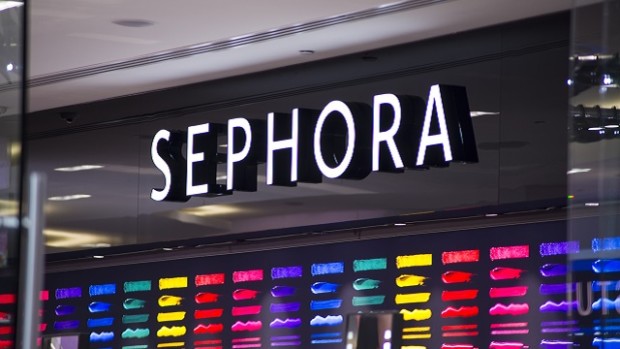Sephora supports black businesses French multinational beauty chain Sephora plans to dedicate 15 per cent of its stores’ shelf space to the products of black-owned companies, becoming the first major retailer in the US to take the “15 per cent pledge”. The pledge stems from a movement that began last month amid demonstrations over the death of George Floyd on May 25 and a national conversation about race inequality in America, including challenges that black business owners face in securin
securing representation within big retailers.
The 15 Per Cent Pledge website specifically calls on Sephora, Target, Net-a-Porter, Whole Foods and Shopbop to make the commitment.
“We represent 15 per cent of the population and we need to represent 15 per cent of your shelf space,” designer Aurora James wrote on Instagram.
In a statement to CNN, Sephora’s executive vice president and chief merchandising officer, Artemis Patrick, said this is a commitment with a long-term plan to diversify the company’s supply chain and build a system that creates a better platform for black-owned brands to grow.
Currently, Sephora offers nine black-owned brands among the more than 290 it sells. The company said it recognises it can do better.
Guess to close 100 stores
US clothing and accessories brand Guess is permanently shuttering about 100 stores in North America and China, or roughly 9 per cent of its global network. The closures will take place over the next 18 months.
“The recent store performance and expected demand under our ‘new normal’ model made very clear that our store portfolios around the world could be optimised to increase profitability,” CEO Carlos Alberini told reporters.
About 70 per cent of Guess’s leases around the world are expiring within the next three years, and many of these stores will be closed rather than renewed.
The company said it began suspending rent payments in April, when the majority of its locations were closed in accordance with government-mandated coronavirus-related lockdowns. It said it was currently in discussions with landlords regarding its lease obligations.
Zara owner boosts online efforts
Zara owner Inditex has tied its fortunes to online sales, unveiling a €2.7 billion ($4.5 billion) investment in technology to make it easier for customers to track the items they want.
The change comes as the retailer announced the closure of some 1200 stores – mostly in Asia and Europe and mostly from brands other than Zara – following a 44 per cent slump in sales due to the coronavirus lockdown.
Using the Spanish multinational fashion retailer’s app, shoppers will now be able to browse a specific store’s stock to buy items for collection the same day, reserve a changing room, find garments in store via a map and self-check-out using QR codes, Reuters reports.
The idea is that sophisticated control of stock and high-tech tools for shoppers to locate items both in store and online will lead to more sales at full price.
Tailored Brands faces bankruptcy
Men’s Wearhouse owner Tailored Brands says it may have to seek bankruptcy protection or discontinue operations if the COVID-19 crisis continues to pummel sales, which plunged 60.4 per cent in the first quarter.
The pandemic has added to the US retail holding company’s woes as it had already been struggling with competition from fast fashion brands and a shift to online shopping. Tailored Brands also owns menswear retailer JoS A Bank.
As of May 2, the company had long-term debt of US$1.4 billion and US$244.2 million of cash and cash equivalents.
Apparel retailers have been among the worst affected by the pandemic as their businesses were considered non-essential and therefore had to close in most places.
Companies pressed on diversity
The May 25 death of George Floyd in Minneapolis has set off an unprecedented flurry of corporate statements of solidarity with the black community – along with pledges of more than US$1.7 billion to advance racial justice and equity. The outpouring of support, however, has stirred up criticism along with praise.
Leaders of major companies including Comcast, Nike and Warner Music Group have announced large gifts to advance racial justice. Bank of America pledged US$1 billion over four years to address economic and racial inequality. At least a dozen other big companies announced gifts between US$1 million and US$100 million for similar efforts, Reuters reports.
But many social justice advocates, corporate diversity experts and investors say companies also need to focus on equity in their own ranks, especially by hiring and promoting minority workers.
“If you take an honest look at corporate America, outside their glossy diversity reports, structural bias for women and people of colour remains as entrenched as ever,” Natasha Lamb of Arjuna Capital, an activist investment adviser in Boston, told Reuters.

